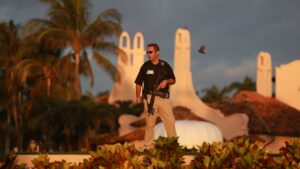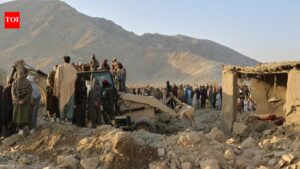The hotel shaped like two gigantic swords | CNN

Editor’s Note: This CNN Travel series is, or was, sponsored by the country it highlights. CNN retains full editorial control over subject matter, reporting and frequency of the articles and videos within the sponsorship, in compliance with our policy.
CNN
—
In Qatar, a country where the subway has a business class compartment and Friday brunch is a competitive sport, opulence is a mere baseline.
For a new hotel to really stand out here, its designers have to do something incredibly dramatic – like spend five years erecting a brand new building in the shape of the country’s national crest.
This new addition to the Doha skyline is called Katara Towers and is divided between two hotel brands, the Fairmont and the Raffles. Each occupies one half of the 300,000 square meter building, which is designed to resemble a pair of Qatari crossed scimitars.
Set alongside the aquamarine waters of the Persian Gulf, these fraternal twin hotels are each luxurious in their own ways.
The Raffles, an all-suite property on the left half of the building, draws inspiration from the fine arts. In the lobby, there’s a white grand piano, with the light reflecting on it from a swirling 60-meter (197-foot) kaleidoscope projected on the ceiling.
There’s a private cinema, complete with cushy red velvet seats and custom snacks prepared by hotel chefs. The rooftop bar, Acoustic, hosts live performances alongside a crystal-lined bar designed to resemble a whiskey tumbler.
The highest-end suite is the appropriately named Raffles Suite, which sprawls over two floors of the hotel and has its own private swimming pool, internal elevator, hair salon and even a hammam.
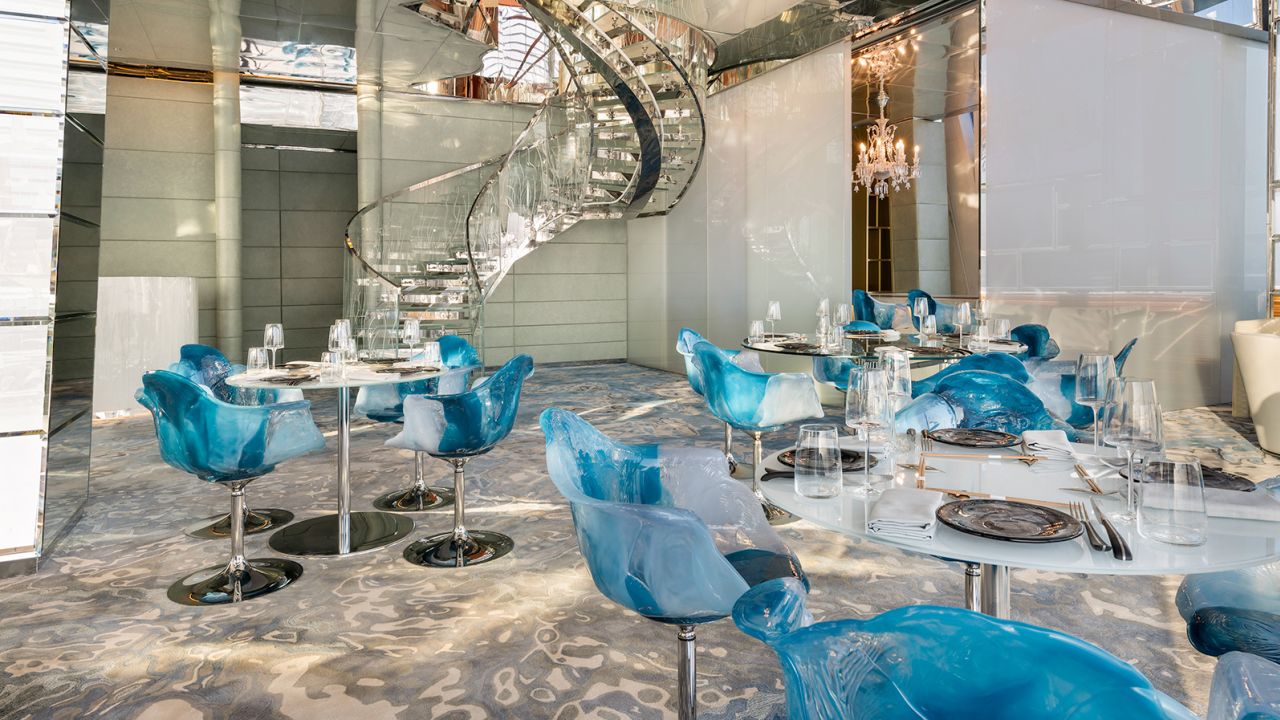
Blue Cigar, a cocktail and cigar bar with moody deep-blue interiors and ceiling-high bookshelves, feels like a Bond hangout.
But those ceiling-high bookshelves aren’t just decorative. While a cigar sommelier selects a stogie or a server hands out sliders on blue-tinted buns, a visitor will be asked the name of his or her favorite author.
Within an hour, it’s likely that a staff member will return to the visitor with a copy of a rare book by that specific author. Rare-books experts were dispatched around the globe to build the hotel’s impressive library.
Some of the collection’s highlights are a first edition “Moby Dick” and the earliest known edition of Homer’s epic “The Odyssey” ever printed in English.
Guests will be given a pair of gloves and a magnifying glass in order to peruse the pages themselves or can request that a staff member read a specific passage out loud.
Angela Moore, who does international PR and communications for Qatar’s tourism board, took a turn as a tourist on a recent visit to the Katara Towers.
“I see a lot of hotels in my work,” she said. “Lots of hotels think they can simply offer a nice room with a pretty view, but what Fairmont and Raffles are doing here is more than just glitz. Each property is awe-inspiring and curated to each guest individually.”
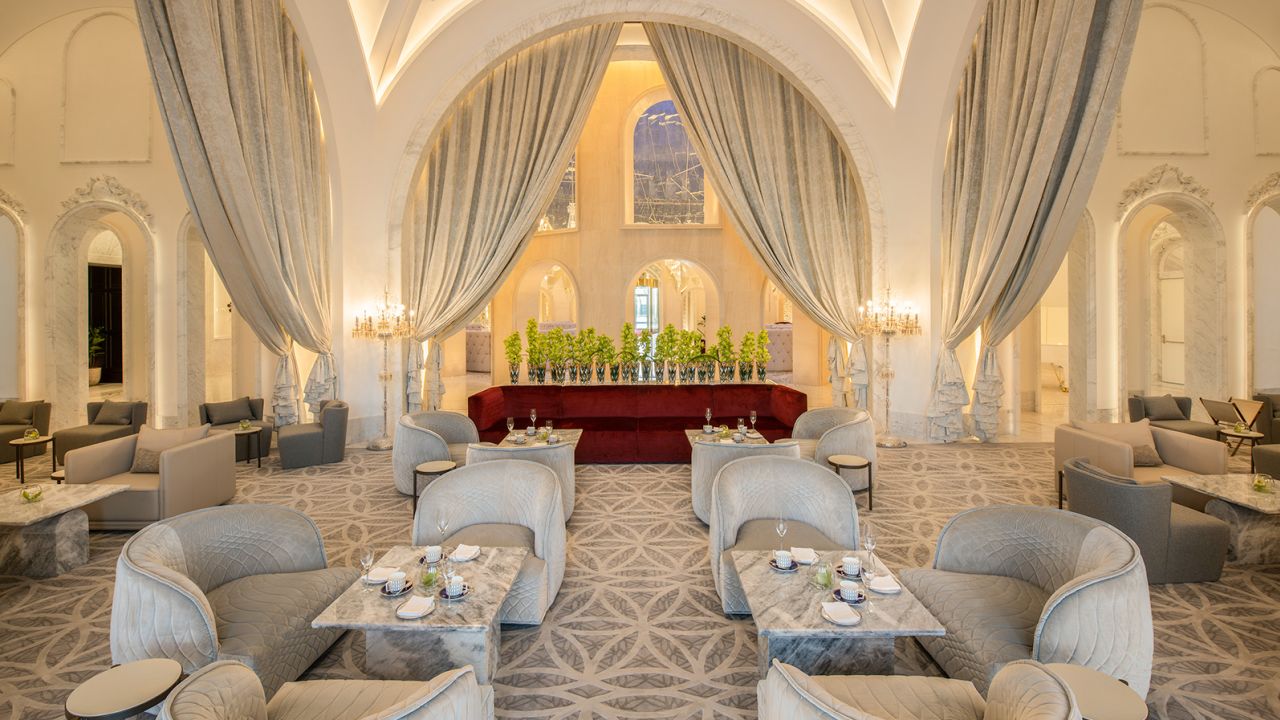
So, how does a guest choose which half of the building they’d prefer to book into?
Christian Hirt, the managing director for both properties, explains that each hotel has its own kind of client base.
When asked how to differentiate between them, he says: “Raffles guests are refined travelers looking for new, different, cultural experiences that they haven’t had before. Fairmont guests are seasoned travelers who want to discover the destination and local culture in an authentic way, with couples and families looking to enjoy both the property and the vibrant destination.”
The Fairmont’s feeling of vibrancy begins as soon as you walk in.
Squares of 18-karat gold are used to create texture on the walls, and the world’s biggest chandelier – clocking in at 56 meters (183 feet) high – sparkles pearlescent and gold down on you.
The Fairmont’s design concept comes from another mainstay of luxury culture – yachts.
Rooms are elegant and warm in shades of white and blue, with eastern-facing ones overlooking the Persian Gulf. Beds are enveloped by curved white velvet headboards resembling one of the country’s most famous symbols – the pearl.
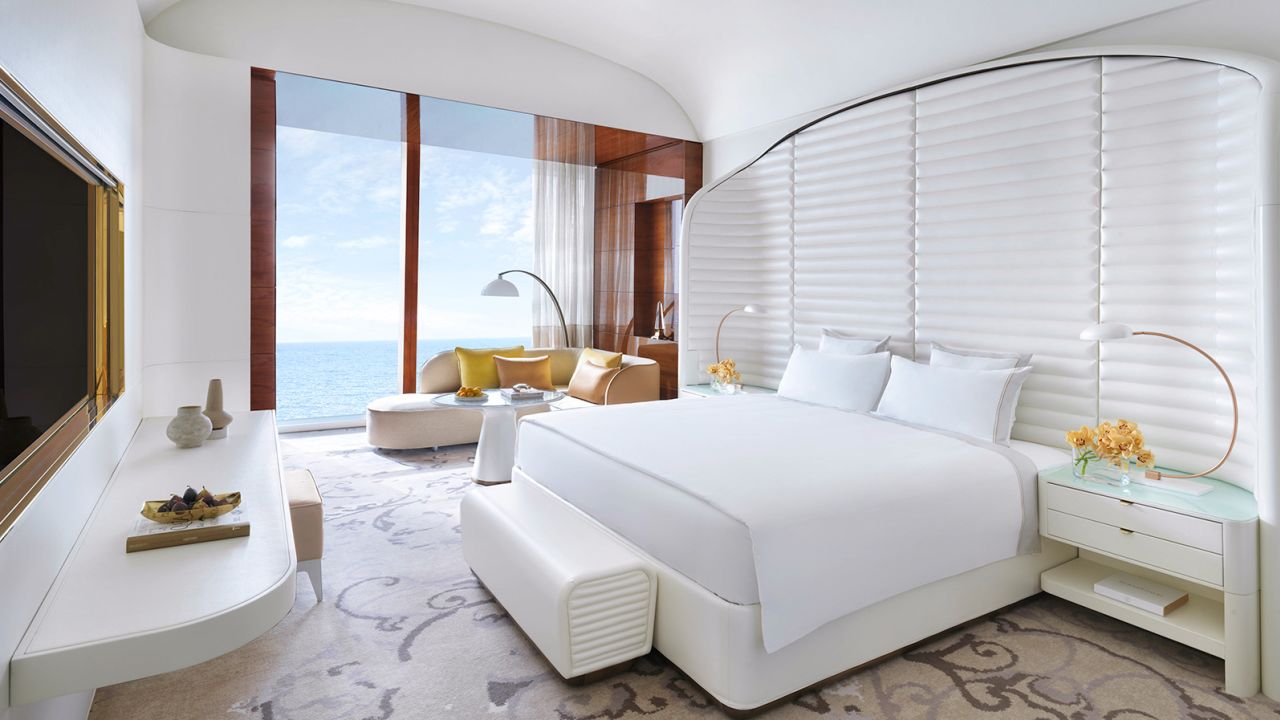
The nautical theme continues, but subtly – think sculptures of seashells, bedside lights inspired by hurricane lamps and art books with photographs of the world’s oceans.
There are also tables and other room details inlaid with colorful tiles, a classic Islamic form – it’s worth a visit to Doha’s I.M. Pei-designed Museum of Islamic Art to learn more about this tradition.
In elegant 33rd-floor bar Provok, blue and white glass give a light, airy feel while also maximizing the light of the bright desert sun.
Falconry is a popular pastime in the Middle East, with the local souk having an entire wing (pun intended) dedicated to the birds and their high-class lifestyles in some of Qatar’s most prestigious residences.
Thus it feels fitting that two of the Fairmont’s priciest suites – the Peregrine and the Lanner – are named after falcon breeds.
Service at both properties is polite and understated. Front desk staff and concierges sport custom-designed suits and dresses from the appropriately named British fashion brand No Uniform, which has also created workwear for high-end hotels like Claridge’s in London.
Female Fairmont employees wear long sleeved dresses with colorful floral details, while Raffles bellhops and doormen are dressed in natty three-piece suits with top hats.
Katara Towers is one of the architectural anchors of Lusail, Qatar’s second-largest municipality, which was built on reclaimed land to curl along a sliver of the Persian Gulf.
It is about 20 kilometers (12.5 miles) north of capital Doha and five kilometers (three miles) north of the Katara Cultural Village.
The area is home to Lusail Stadium, which was a major venue for the World Cup in November and December of last year – most notably, the final between France and eventual victor Argentina – as well as the Formula One racetrack that hosted the 2021 Qatar Grand Prix event.
The Fairmont and Raffles hotels officially opened to the public in January 2023.
Before that, though, it was in use during the World Cup for FIFA officials and – rumor has it – members of the Qatari royal family.
Crossed scimitars are the most prominent feature of Qatar’s national emblem. An updated emblem was revealed by the government last fall, which happened to coincide with the end of construction work on the building.
The Qatari double-sword design can be spotted all over the Middle Eastern country, from coffee cups to jewelry. But this is the first time that the shape has appeared in the form of a building.

